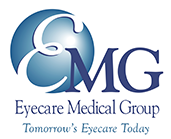 Seniors can take an important step in preventing vision loss from Age Related Macular Degeneration (AMD) by scheduling regular eye exams and sharing their risk factors with their eye doctor. Age Related Macular Degeneration (AMD) is the leading cause of blindness among older Americans, but thanks to recent treatment advances we have dramatically changed the course of this disease for seniors. BUT, early detection is a critical first step to preserving vision!
Seniors can take an important step in preventing vision loss from Age Related Macular Degeneration (AMD) by scheduling regular eye exams and sharing their risk factors with their eye doctor. Age Related Macular Degeneration (AMD) is the leading cause of blindness among older Americans, but thanks to recent treatment advances we have dramatically changed the course of this disease for seniors. BUT, early detection is a critical first step to preserving vision!
About Age Related Macular Degeneration (AMD)
In the United States, approximately 11 million Americans are affected by some type of AMD. AMD has two types, a wet type and dry type. While dry AMD leads to a gradual loss of vision, wet AMD leads to faster, even catastrophic vision loss and is the most advanced form of the disease. Wet AMD is responsible for 90 percent of all AMD-related blindness. As recently as 10-12 years ago, the “wet” form of AMD was considered largely untreatable and many patients went blind. Then came the introduction of injectable anti-vascular endothelial growth factor (anti-VEGF) drugs which block formation of abnormal blood vessels under the retina that cause permanent vision loss. The usage of anti-VEGF drugs has nearly halved the incidence AMD-related blindness in some countries.
There are several anti-VEGF drugs available that are used to treat AMD. Two of these, Lucentis® and Eylea®, were designed specifically for the treatment of AMD whereas a third drug, Avastin®), was originally developed to treat various types of cancer, but is commonly used “off-label” in patients with AMD. The recommended frequency of these injections varies from every few weeks to every few months, and duration of treatment varies by case.
About AMD Risk Factors
Common risk factors for AMD include increasing age, family history, smoking, and blood vessel disease such as high blood pressure and diabetes. A diet high in omega-3 fatty acids (common in cold water fish) may lower risk. Seniors need to know that in its earliest stages, AMD may not have any symptoms. As it progresses, slight changes in vision may occur such as blurry or distorted vision, blank spots in vision and colors appearing less vivid or bright.
If you or someone you know has not had a recent eye exam, especially if you are over 50 with a family history of AMD or have other AMD risk factors, please call your local optometrist to schedule an appointment. If specialty care, treatment or surgery is required, please ask to be referred to one of the physicians at Eyecare Medical Group, 53 Sewall Street, Portland, Maine 04102 at 888-374-2020, visit Eyecare Medical Group, Google+ or facebook.com/eyecaremedicalgroup to schedule an appointment.





